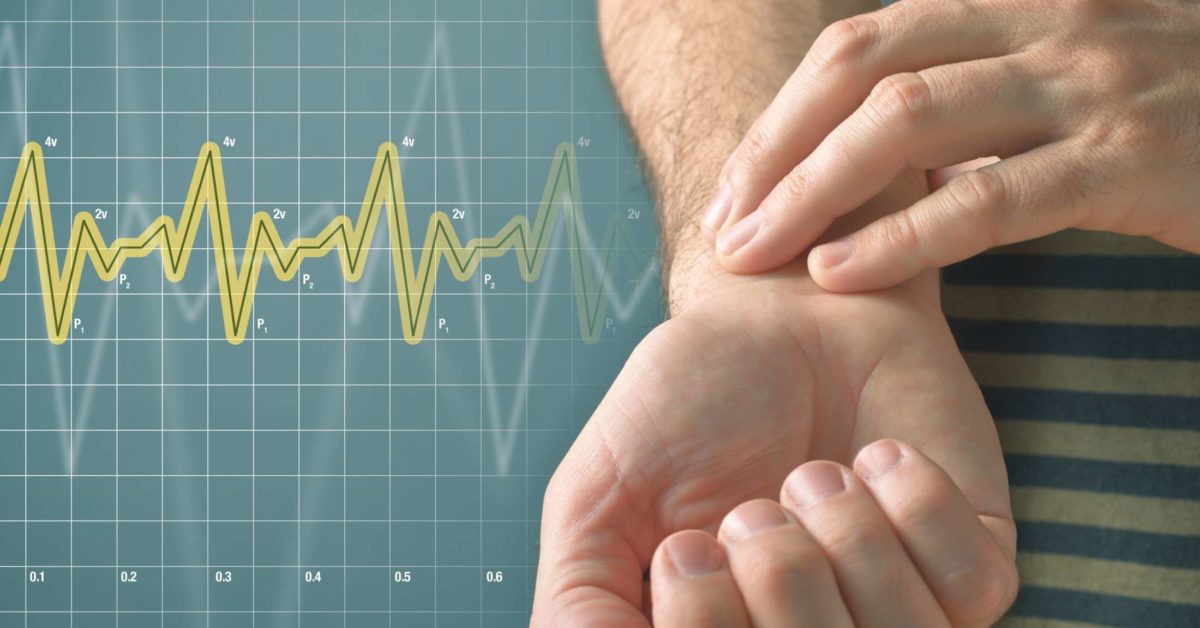Sometimes symptoms occur after a specific activity such as standing up too quickly while others result from an underlying issue. Maximum heart rate and Target Heart Rate.
 How To Lower Your Heart Rate 11 Ways
How To Lower Your Heart Rate 11 Ways
When the heart has a fast abnormal rhythm anything over 100 but closer to 160 beats per minute it cant adequately fill with blood.

What causes high pulse rate. For example I saw one patient who was eating several. The hardening of arteries or the faulty heart valves lead to difficulty in. Having a condition characterized by low blood pressure and high heart rate pulse rate may be cause for concern prompting a visit to your local physician.
A high blood pressure with low pulse rate can usually occur when someone is on medication for hypertension however. When the hearts electrical circuits arent properly functioning the result can be a high heart rate coupled with low blood pressure Dr. Being out of shape physically can make the heart work harder to maintain a.
A rapid heartbeat may be your bodys response to common conditions such as. Possible causes of an elevated pulse include fever anemia anxiety or an overactive thyroid Possible causes of an elevated pulse include fever anemia anxiety or an overactive thyroid. When a person exercise the heart speeds up so that more blood is able to reach the muscles.
Resting heart rate can vary from person to person and be influenced by a variety of factors. The average resting heartbeat for a person is between 60 and 100 beats per minute. Various other conditions like high cholesterol obesity high blood pressure etc are the main causes behind the development of heart diseases which can cause a high pulse rate at rest.
The heart rate is faster than normal but the heart beats properly. Almost always there is a medical reason that the sinus node keeps signaling for the faster rate. The heart rate can be fast for reasons inside the heart or reasons outside the heart.
This need not be the case always and can at times signal unattended hypertension or a grave injury or untreated high blood pressure. Another temporary cause of rapid heart rates is exercise or physical exertion which. A heart rate monitor is also useful for recording your heart rate when resting and during exercise.
A normal pulse rate is between 60 and 100 beats per minute. It might be possible for the high pulse rate to double much more safely while the blood pressure can respond by increasing a modest amount. The resting heart rate is often the result of the bodys reaction to relatively normal physiological reactions.
Aerobic activities such as walking running and swimming are good types of exercise because they increase your heart and breathing rates. Causes of High Pulse Rate Emotional factors. An increase in your resting heart rate over time may be a signal of heart trouble ahead.
Addressing those conditions would likely bring the heart rate back to a normal rate. Temporary causes include emotional factors like sudden fear emotional stress or anxiety excitement. It depends on whether you are standing up or lying down moving around or sitting still stressed or relaxed.
Stress anxiety and dehydration can all be causes for a high rate. Other factors may be involved too such as overdoing caffeine. The most common high pulse rate causes can include heavy exercise and anxiety as well as medical conditions such as pregnancy an overactive thyroid and a fever.
Other less common causes may include. If you check your pulse during or immediately after exercise it may give an indication of your fitness level. Causes of sinus tachycardia.
Heart ailments such as coronary heart diseases hypertension high blood pressure pericarditis congenital heart diseases aortic regurgitation etc are likely to give rise to a higher pulse rate. This would signify that the persons heart is no longer fit enough to work smoothly. Tachycardia also known as a high heart.
These can occur from the. Generally for adults a heart rate of more than 100 beats per minute tachycardia is considered as high. Your heart rate usually rises when you walk fast run or do any strenuous physical activities.
These are known as tachyarrhythmias. A normal resting heart rate for an adult is between 60 and 100 beats per minute. Some medicinal and street drugs.
Possibilities include anemia an underlying infection elevated thyroid hormone or reaction to medication. The electrical system of the heart itself can cause a fast heart rate if there are short circuits that occur within it. The pulse is a measurement of the number of heartbeats that a person experiences per minute.
High pulse rate symptoms. Your heart rate changes from minute to minute. The condition can as well be a precursor to heart ailments and artery related complications.
Exercise or physical exertion. The cause of low blood pressure with a high pulse varies.
